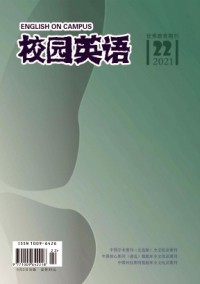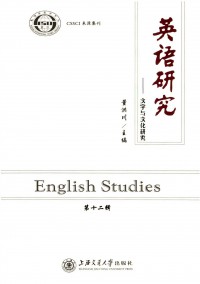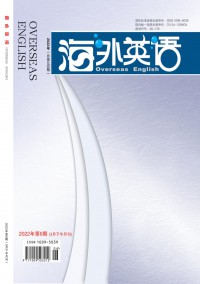英语成语故事
前言:想要写出一篇令人眼前一亮的文章吗?我们特意为您整理了5篇英语成语故事范文,相信会为您的写作带来帮助,发现更多的写作思路和灵感。

英语成语故事范文第1篇
In order to suppress those who were against her, Wu Zetian, the empress of the Tang Dynasty (618-907), appointed a few merciless persons to be judges. Two of them were extremely brutal3; one was called Zhou Xing and the other was called Lai Junchen. They killed many upright civil and military officials as well as ordinary people by framing up cases against tham and by administering inhuman4 corporal punishment to them.
Once, Wu Zetian received a letter which informed against Zhou Xing. The letter aside that Zhou Xing was plotting a rebellion in collaboration5 with others. Wu Zetian was furiously angry when she read the letter, and immediately ordered Lai Junchen to deal with the case severely6. Hearing the order, Lai Junchen had misgivings7 about it. He knew that Zhou Xing could not be forced to tell the truth merely by using a letter informing against him because he was very sly and crafty8. Lai Junchen also knew that he would not be for given if he should fail in dealing9 with the case, because the empress would certainly blame him and punish him. How could he solve the problem then? He turned the problem over and over in his mind, and finally thought out a "brilliant scheme".
Lai Junchen had a sumptuous10 feast prepared, and invited Zhou Xing to his home. The two of them urged each other to drink, and they talked while drinking. After the wine had gone round three times, Lai Junchen pretended to sigh, "When Ihandle cases in ordinary times, I often com across prisoners who stubbournly refuse to admit they are guilty. I wonder if you have any effetive measures." Hearing this, he took a sip11 of the wine. Lai Junchen immediately pretended to be very earnest, saying, "Oh, please do tell me at once." Smiling insidiously12, Zhou Xing said, "Get a big vat, scorch13 it hot with charcoal14 fire all around, and then let the prisoner come into the vat. Will the prisoner fail to make a confession15 of his crime?" Hearing this. LaiJunchen nodded his head in approval repeatedly. He then ordered his subordinates to bring a big vat, and had a charcoal fire lit all around it as Zhou Xing had said. He then turned to Zhou Xing and said, "Someone in the imperial court has informed against you, saying that you are plotting a rebellion. The empress has ordered me to deal with the case severely. So I beg your pardon, but would you kindly step into the "Someone in the imperial court has informed against you, saying that you are plotting a rebellion. The empress has ordered me to deal with the case severely. So I beg your pardon, but would you kindly step into the vat?" Hearing this, Zhou Xing dropped his wine cup to the ground and the cup broke with a crash. Then he knelt down with a flop16, nodded repeatedly and said, "I am guilty. I confess I am guilty."
This story appears in A General History as a Mirror of Past Events by Sima Guang of the Song Dynasty. From this story, people have derived17 the set phrase "kindly step into the vat -- try what you have devised against others".
唐朝女皇武则天,为了镇压反对她的人,任用了一批酷吏。其中两个最为狠毒,一个叫周兴,一个叫来俊臣。他们利用诬陷、控告和惨无人道的刑法,杀害了许多正直的文武官吏和平民百姓。
有一回,一封告密信送到武则天手里,内容竟是告发周兴与人联络谋反。武则天大怒,责令来俊臣严查此事。来俊臣,心里直犯嘀咕,他想,周兴是个狡猾奸诈之徒,仅凭一封告密信,是无法让他说实话的;可万一查不出结果,太后怪罪下来,我来俊臣也担待不起呀。这可怎么办呢?苦苦思索半天,终于想出一条妙计。
英语成语故事范文第2篇
In ancient times, there was a prime1 minister named Shang Yang in the State of Qin. He was held in high regard by the King. In the year 359 BC, he prepared for a political reform to promote the economic development. But he was afraid that the people would not believe local authorities2. He thought an idea.
One day, he had a 10-meter long pole erected3 at the south gate outside the capital. Then he told the crowd whoever took the pole to the north gate would be awarded 10 ounces4 of silver. Everyone was astonished, but nobody dared to have a try. After seeing that, Shang Yang raised his voice and said:" Anyone who carries the pole to the north gate will get 50 ounces of silver." A brave man did it and was be given 50 ounces of silver. Others felt very reGREtful.
In this way, Shang Yang achieved his aim successfully. Soon the state of Qin became the strongest country.
Later, people use it to praise the man who keeps his promise.
一言为重
古时候秦国有个相国叫商鞅,秦王非常器重他。公元前359年,他打算在秦国实行变法,但他怕百姓们不相信官府,就决定做件事以取得他们的信任。
有一天。他把一根10米长的竿子竖在都城南门外,然后告诉百姓如果谁把这根竹竿拿到城边北门,就赏给他10两银子。开始,大家听到这个消息都很吃惊,但没人敢试。于是商鞅又提高声音说:"谁把这根竹竿拿到北门,赏50两银子。"这时,有一个胆子挺大的人愿意去试一试。当他把竹竿拿到北门时,商鞅立刻赏给他50两银子。其他人看见了,都非常后悔自己没去试。
英语成语故事范文第3篇
战国时候,齐国的孟尝君喜欢招纳各种人做门客,号称宾客三千。他对宾客是来者不拒,有才能的让他们各尽其能,没有才能的也提供食宿。
有一次,孟尝君率领众宾客出使秦国。秦昭王将他留下,想让他当相国。孟尝君不敢得罪秦昭王,只好留下来。不久,大臣们劝秦王说:“留下孟尝君对秦国是不利的,他出身王族,在齐国有封地,有家人,怎么会真心为秦国办事呢?”秦昭王觉得有理,便改变了主意,把孟尝君和他的手下人软禁起来,只等找个借口杀掉。
泰昭王有个最受宠爱的妃子,只要妃子说一,昭王绝不说二。孟尝君派人去求她救助。妃子答应了,条件是拿齐国那一件天下无双的狐白裘(用白色狐腋的皮毛做成的皮衣)做报酬。这可叫孟尝君作难了,因为刚到秦国,他便把这件狐白裘献给了秦昭王。就在这时候,有一个门说:“我能把狐白裘找来!”说完就走了。
原来这个门客最善于钻狗洞偷东西。他先摸清情况,知道昭王特别喜爱那件狐裘,一时舍不得穿,放在宫中的精品贮藏室里。他便借着月光,逃过巡逻人的眼睛,轻易地钻进贮藏室把狐裘偷出来。妃子见到狐白裘高兴极了,想方设法说服秦昭王放弃了杀孟尝君的念头,并准备过两天为他饯行,送他回齐国。
孟尝君可不敢再等过两天,立即率领手下人连夜偷偷骑马向东快奔。到了函谷关(在现在河南省灵宝县,当时是秦国的东大门)正是半夜。按秦国法规,函谷关每天鸡叫才开门,半夜时候,鸡可怎么能叫呢?大家正犯愁时,只听见几声“喔,喔,喔”的雄鸡啼鸣,接着,城关外的雄鸡都打鸣了。原来,孟尝君的另一个门客会学鸡叫,而鸡是只要听到第一声啼叫就立刻会跟着叫起来的。怎么还没睡蹭实鸡就叫了呢?守关的士兵虽然觉得奇怪,但也只得起来打开关门,放他们出去。
天亮了,秦昭王得知孟尝君一行已经逃走,立刻派出人马追赶。追到函谷关,人家已经出关多时了。
英语成语故事范文第4篇
In the years around 480 B.C.,China was in the last phase of the Spring and Autumn Period.Fu Chai,King of the State of Wu,conquered the states of Yue,Lu and Chi one after another.Then Fu Chai,overweeningly ambitious,led his army marching into the Northwest in an attempt to conquer the State of Jin in one vigorous effort.
But just at that time,Gou Jian,king of the State of Yue,outflanked Fu Chai and attacked him in the rear.Gou Jian's army fought one battle after another and arrived in Gu Su,capital of the State of Wu,at last,and took away the big boats of the State of Wu.Gou Jin also sent his troops to occupy the Huai River immediately,thus cutting off Fu Chai's retreat
The shocking news reached Fu Chai,king of the State of Wu,like a head-on blow to him.So he called his civilian1 officials and military generals at once to find a way to deal with this serious situation.His civilian officials and military their troops now would mean defeat,and that they would be attacked by both the troops of the Jin army and the troops of the Yue army.But ,if they could defeat the State of Jin,Fu Chai would become a powerful chief of the princes at that time,and it would not be too late for Fu Chai to settle with Gou Jian after that.
Having made this decision,they knew that a pressing matter of the moment was to conquer th State of Jin as quickly as possible.After considering over and over again,they decided2 to try to defeat the Jin army by a surprise move.
One day towards evening,the king of the State of Wu gave his orders.The officers and men of the whole army ate their fill,and the steeds were well fed with fodder3.30,000 officers and men were chosen from the whole army to from three phalanxes,with 10,000officers and men each.The solders4 in the middle phalanx wore white suits of armour,and carried white flags and white bows and arrows,and they were led by king of the State of Wu Fu Chai himself.The other two phalanxes were led by senior generals.The soldiers in the left phalanx wore red suits of armour,and carried red flags and red bows and arrows.The in dealing5 with the case,because the empress would certainly blame him and punish him.How could he solve the problem then? He turned the problem over and over in his mind, and finally thought out a "brilliant scheme".
Lai Junchen had a sumptuous6 feast prepared,and invited Zhou Xing to his home. The two of them urged each other to drink,and they talked while drinking.After the wine had gone round three times,I often come across prisoners who stubbournly refuse to admit they are guilty.I wonder if you have any effective measures." Hearing this,Zhou Xing said,"Get a big vat7,scorch it hot with charcoal8 fire all around,and then let the prisoner come into the vat.Will the prisoner fail to make a comfession of his crime?"Hearing this,LaiJunchen nodded his head in approval repeatedly.He then ordered his subordinates to bring a big vat ,and had a charcoal fire lit all around it as Zhou Xing had said.He then turned to Zhou Xing and said,"Someone in the rebellion.The empress has ordered me to deal with the case severely9.So I beg your pardon,but would you kindly10 step into the soldiers in the right phalanx wore black suits of armour,and carried black flags and black bows and arrows.The whole army set out at midnight,and arrived at dawn at a place within a LI's distance of the Jin army.When the day was beginning to break,the soldiers of the Wu army began to berat the drums heavily and their shoutings resounded11 like rolls of thunder.
Awakening12 from their dreams,the solders of the Jin army were almost stupefied by the imposing13 manner of the three phalanxes of the Wu army.The white phalanx was like a field covered with flowering rush,the red phalanx was like a burning fire,and the black phalanx was simply like a sea too deep to fathom14.
This story comes from Comversations from the States.Later generations often use the set phrase "like fire and flowering rush"to refer to tremendous momentum15.
春秋时代末期,吴国国王夫差连续征服了越国、鲁国和齐国,雄心勃勃,又继续向西北进军,打算一鼓作气征服晋国。
可正在这个时候,越王勾践抄了吴王的后路。他带领军队一直打到吴国的国都姑苏(苏州),又派人马占据淮河,把吴王的退路切断了。
这消息给吴王夫差当头泼了一盆冷水,他非常震惊,立即召集文臣武将商量对策。大家说,现在退回去等于两关打了败仗,还会两头挨打;如果能打败晋国,就等于在诸候国中当定了霸主,再回去收拾越王勾践也不算晚。
大主意已经拿定,当务之急是尽快征服晋国。考虑再三,决定出奇制胜。
一天傍晚,吴王下达了命令。全军将士吃得饱饱的,马也喂足了草料。从全军中挑出三万精兵强将。每一万人摆成一个方阵,共摆三个方阵。每个方阵横竖都是一百人。每一行排头的都是军官司。每十行,也就是一千人,由一个大夫负责。每项一个方阵由一名将军率领。中间的方阵白盔白甲,白衣服,白旗帜,白弓箭,由吴王自己掌握,称为中军;左边的方阵,红盔红甲、红衣服、红简直就像深不可测;右边的方阵则一水儿黑色。半夜出发,黎明时分到达离晋军仅有一里路的地方。天色刚刚显出亮色,吴军鼓声大作,欢呼之声震天动工地。
英语成语故事范文第5篇
为贯彻落实《人民政府办公室关于印发〈城镇燃气事故应急预案〉的通知》及《住房和城乡建设局关于编制完善县(区)城镇燃气事故应急预案和建立应急抢险队伍的通知》文件要求,有效预防、及时处置全县各类突发燃气事故,提高应对燃气事故应急处置能力,最大限度地减少燃气事故及其造成的人员伤亡和财产损失,保障经济持续稳定发展和城市安全运行,编制本预案。
二、制定过程
县住建局组织对全县城镇燃气生产及经营现状进行了调研,结合我县实际情况草拟了《城镇燃气事故应急预案(征求意见稿)》并征求了各乡镇人民政府及县级相关部门(单位)意见,根据征求意见情况修改后形成了《城镇燃气事故应急预案》
三、主要内容
《城镇燃气事故应急预案》主要内容:
一是总则。包括编制目的、编制依据、事故分级、工作原则。
二是指挥部组成及职责。明确了指挥部的组成单位、人员及相关职责。
三是预警预防机制。明确监测预报、预警级别与运行机制。
四是应急处置。明确了信息报告与通报、先期处置、应急响应、响应等级调整、现场指挥与协调、信息共享和处理、信息、应急结束、后期处置相关要求。


